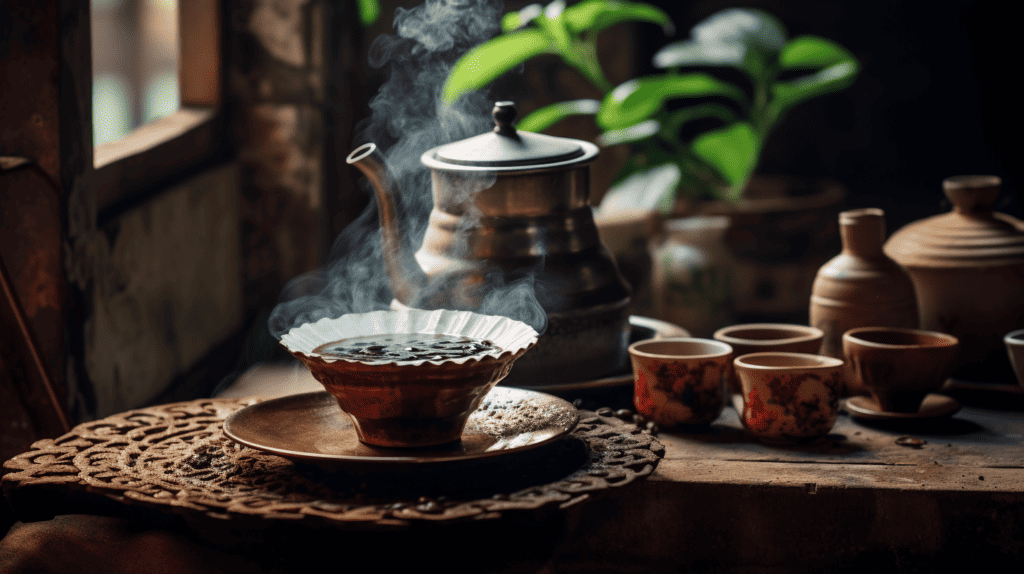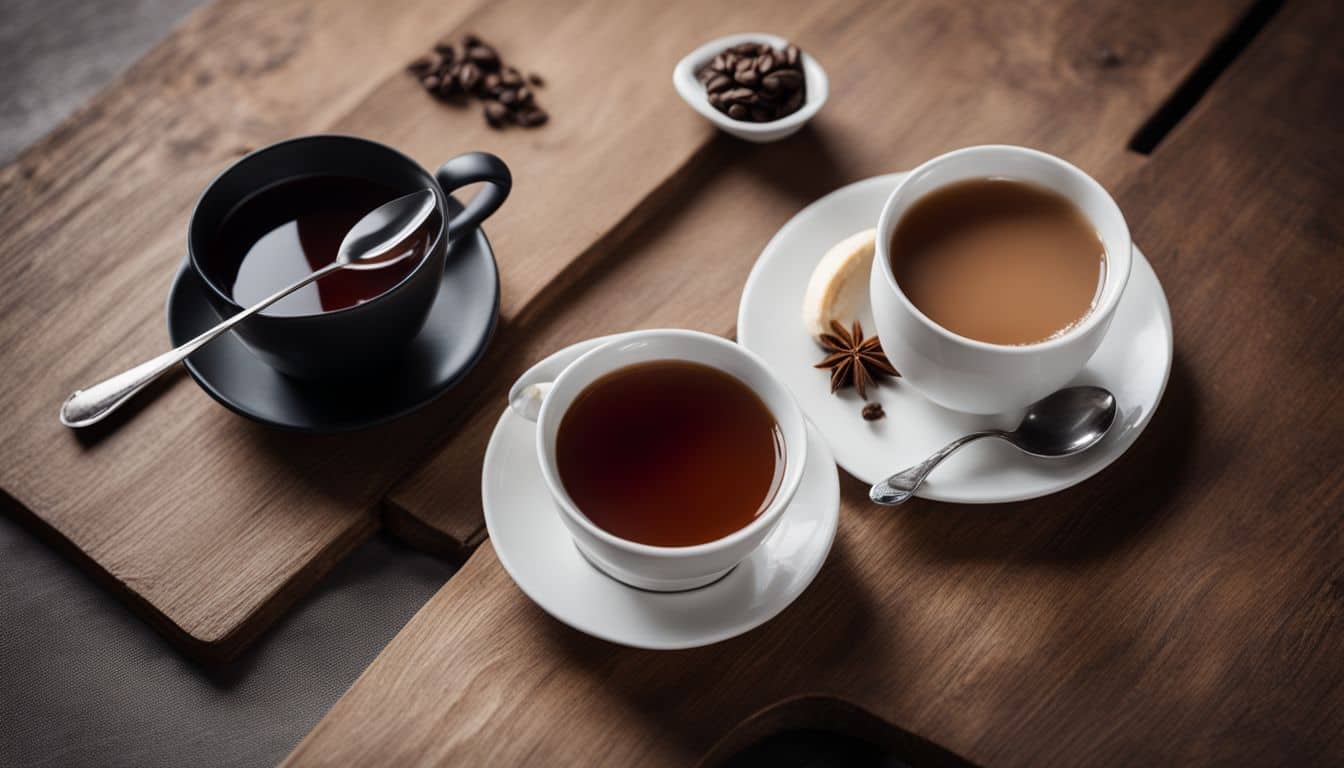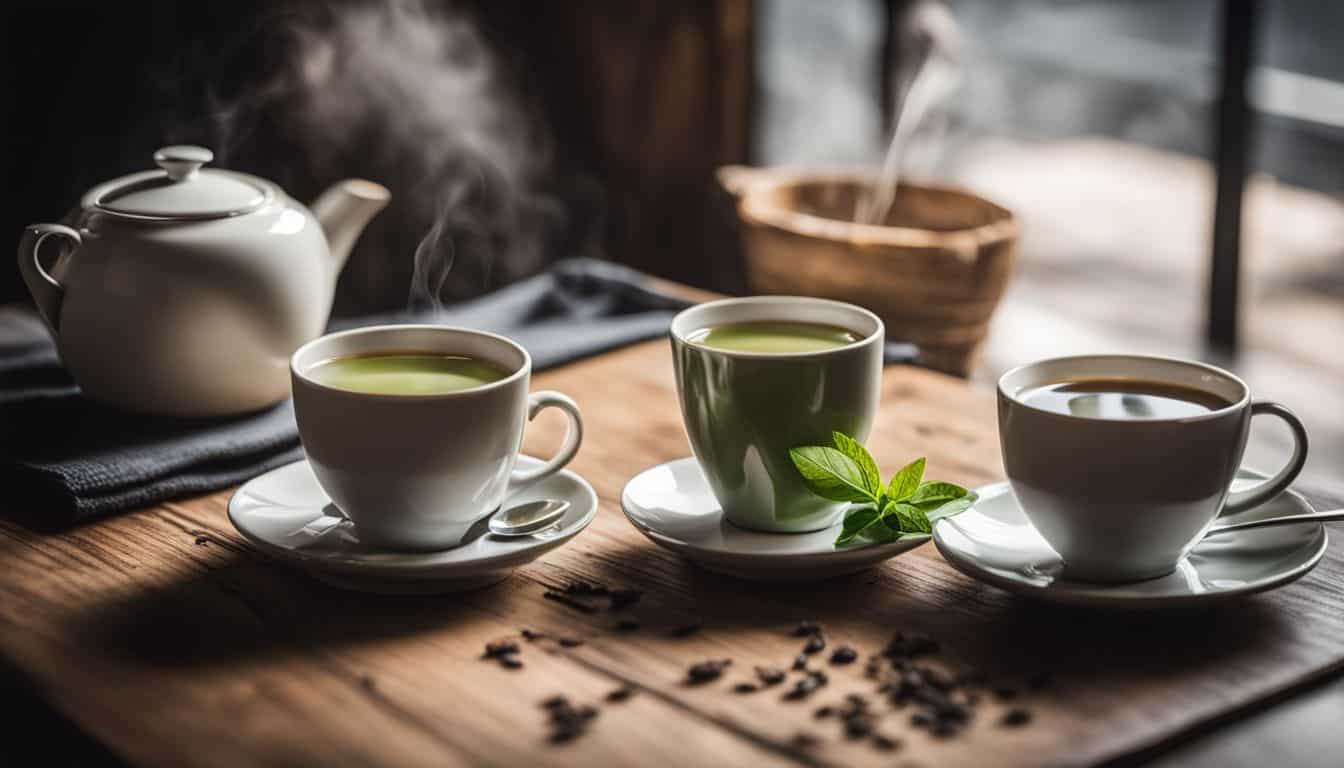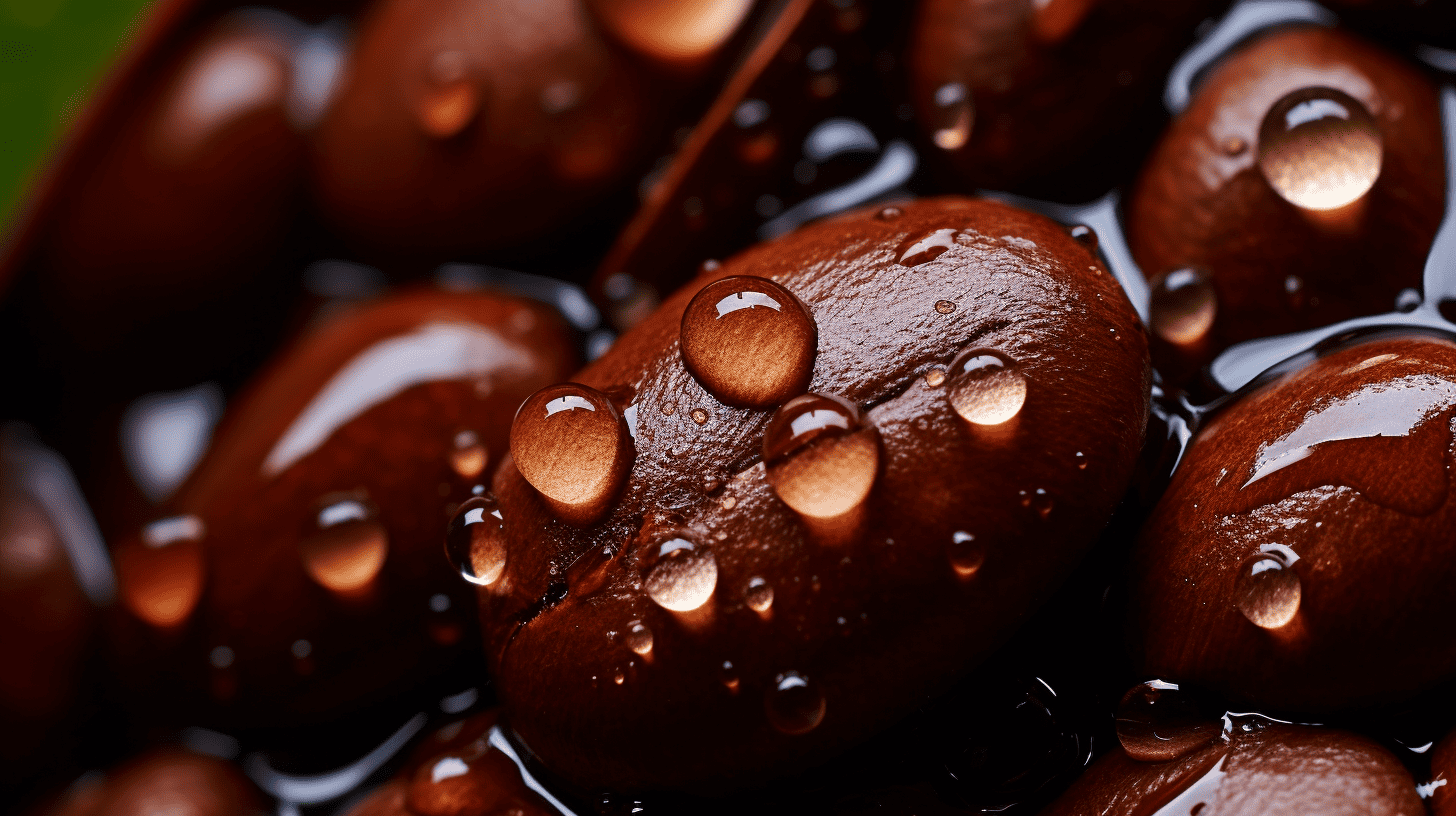If you’re like me, you’ve probably questioned how much caffeine in black tea vs coffee was? As a dedicated caffeine enthusiast, I was surprised that an 8-ounce cup of black tea contains around half as much caffeine as coffee! This blog post strives to uncover the truth about these two beloved beverages and their varying levels of caffeine content.
Curious? Read on – let’s spill some beans (or should I say leaves?).
Key Takeaways
- Black tea contains around half the amount of caffeine as coffee, with an average of 40 mg in an 8-ounce cup compared to coffee’s 90-100 mg.
- The caffeine content in black tea varies depending on the variety, with Assam and Yunnan black teas having higher levels.
- Coffee provides a stronger energy boost due to its higher caffeine content, while black tea contains L-theanine which promotes relaxation and focus.
- It’s important to consume caffeine in moderation to avoid negative health effects such as restlessness, increased heart rate, and difficulty sleeping.
Caffeine Content Comparison
When it comes to caffeine content, black tea and coffee differ significantly.
Caffeine content in black tea
Black tea does have caffeine, but less than coffee. For each 8 fluid ounce cup, black tea has about 47 mg of caffeine. The leaves used to make it carry around 3.5% caffeine. This is higher than coffee beans, which only hold between 1.1-2.% caffeine! But don’t get fooled.
Even with more caffeine in the leaves, your cup of black tea still ends up having half the amount of a coffee cup. So if you want less buzz from your hot drink, black tea might be a good pick for you.
Caffeine content in coffee
Coffee is known for its higher caffeine content compared to other beverages. On average, an 8-fluid ounce cup of coffee contains around 90-100 milligrams of caffeine. The amount can vary depending on the type of coffee bean used and the brewing method.
It’s important to note that coffee beans have a lower natural caffeine content than tea leaves, but the brewing process extracts more caffeine from the beans, resulting in a higher overall concentration in your cup of joe.
So if you’re looking for a strong energy boost, coffee is definitely a good choice!
Effects of Caffeine
Coffee provides an energy-boosting effect due to its high caffeine content, while black tea contains L-theanine which promotes relaxation and focus.
Energy-boosting effects of coffee
Coffee is well-known for its energy-boosting effects. It contains caffeine, which can increase alertness and help you feel more awake. The average cup of coffee has around 90 to 100 milligrams of caffeine, making it a popular choice for those needing an extra bit of energy throughout the day.
Caffeine stimulates the central nervous system, improving focus and reducing fatigue. So if you’re looking for a pick-me-up, a cup of coffee can be a great choice!
L-theanine in black tea
Black tea contains an amino acid called L-theanine. L-theanine has calming and relaxing effects, which can help to counterbalance the stimulating effects of caffeine. This means that while black tea does contain caffeine, it may not give you the same jitters or anxiety that coffee sometimes can.
Combining caffeine and L-theanine in black tea can provide a more balanced and gentle energy boost than coffee. So if you’re looking for a drink that gives you some energy without the jittery side effects, black tea with its L-theanine content might be a good choice for you!
Health Considerations
Excessive consumption of caffeine can have harmful effects on the body, so it’s important to consider the potential health risks.
Too much caffeine can be harmful
Having too much caffeine can actually be harmful to your health. While a moderate amount of caffeine can provide an energy boost and increase alertness, consuming excessive amounts can lead to negative effects such as restlessness, irritability, increased heart rate, and difficulty sleeping.
It is important to be mindful of your caffeine intake and not exceed the recommended limits. This is especially true for those who are more sensitive to caffeine or have certain medical conditions that may be aggravated by its effects.
So while enjoying a cup or two of coffee or black tea can have its benefits, it’s best to consume them in moderation for optimal health.
Brewing smaller quantities for effectiveness
When it comes to maximizing the effectiveness of black tea, brewing smaller quantities is key. By using less water and fewer tea leaves, you can intensify your cup of tea’s flavor and caffeine content.
This is especially helpful if you want a stronger boost of energy from your black tea. So instead of making a big pot, try brewing just enough for one or two servings and see how it affects your experience.
Experimentation is key when finding what works best for you!

Other Factors to Consider
Different varieties of black tea can have varying levels of caffeine, so it’s important to consider the specific type when comparing its caffeine content to coffee. Additionally, for those looking for a high-caffeine black tea option, recommendations will be provided.
Different caffeine levels in black tea varieties
There are different levels of caffeine in black tea, depending on the variety. Here are some examples:
- Assam Black Tea: Assam black tea usually has a higher caffeine content compared to other black tea varieties. It can contain around 50-60 mg of caffeine per 8 fluid ounces.
- Darjeeling Black Tea: Darjeeling black tea is known for its delicate flavor and lower caffeine content. It typically contains around 30-40 mg of caffeine per 8 fluid ounces.
- Ceylon Black Tea: Ceylon black tea, which is grown in Sri Lanka, generally has a moderate amount of caffeine. It can contain around 40-50 mg of caffeine per 8 fluid ounces.
- Earl Grey Black Tea: Earl Grey is a popular flavored black tea that contains bergamot oil. The caffeine content in Earl Grey black tea is similar to other black tea varieties, ranging from 30-50 mg per 8 fluid ounces.
- English Breakfast Black Tea: English Breakfast black tea blends usually consist of Assam, Ceylon, and Kenyan teas. They have a moderate to high level of caffeine, with around 40-60 mg per 8 fluid ounces.
Recommendations for high-caffeine black teas
I recently discovered some high-caffeine black teas that are perfect for those who prefer a strong kick of caffeine in their beverage. Here are my recommendations:
- Assam Black Tea: Known for its robust and malty flavor, Assam black tea is also one of the highest-caffeine black teas available. It’s a great choice if you’re looking for a bold and energizing cup of tea.
- Yunnan Black Tea: Hailing from the Yunnan province in China, this black tea has a rich and earthy flavor profile. It’s known for its higher caffeine content, making it an excellent choice for those seeking a strong pick-me-up.
- Darjeeling Black Tea: While not as high in caffeine as some other black teas, Darjeeling still packs a punch with its distinctive muscatel flavor. It offers a moderate level of caffeine and is perfect for those who want a balanced and flavorful cup.
- Ceylon Black Tea: Grown in Sri Lanka, Ceylon black tea is known for its bright and citrusy taste. It contains a decent amount of caffeine, providing a stimulating boost without being overwhelming.
- Keemun Black Tea: Originating from China’s Anhui province, Keemun black tea has a sweet and floral aroma with notes of chocolate. It contains a good amount of caffeine, making it an ideal choice for those who enjoy complex flavors.
Is Green Tea a Better Source of Energy Than Black Tea and Coffee?
Caffeine in green tea vs black tea: While black tea and coffee are often considered popular sources of energy, green tea provides a unique alternative. Although it contains less caffeine than coffee, green tea’s high antioxidant content and natural compounds like L-theanine can promote a calm yet focused state. This, combined with a gentle caffeine boost, makes green tea a healthier choice for a sustained and balanced energy level throughout the day.
Conclusion on How Much Caffeine In Black Tea Vs Coffee
Black tea generally has less caffeine compared to coffee. On average, an 8-ounce cup of black tea contains around 40 mg of caffeine, while coffee can have about double that amount.
However, it’s important to note that the caffeine content in both beverages can vary depending on factors like brewing methods and types of beans or leaves used. Ultimately, the choice between black tea and coffee comes down to personal preference and how much caffeine you’re comfortable consuming.





Leave a Reply